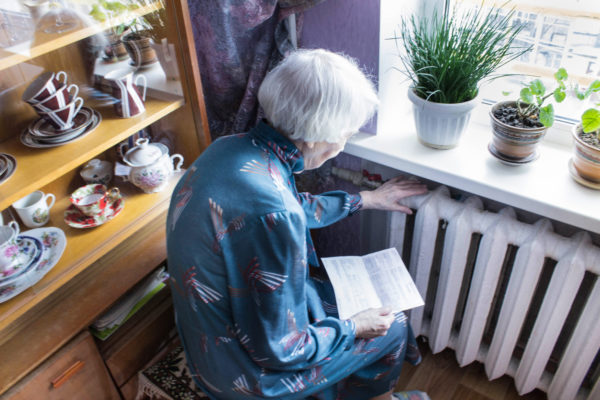What staying at home can teach us about the housing experiences of many older people
The COVID-19 virus and associated government responses have had a considerable impact on the housing system in the UK. This blog by the UK Collaborative Centre for Housing Evidence (CaCHE)’s Professor David Robinson, reposted from the CaCHE website, is the first in a series which will explore the key issues raised by the pandemic. You can view other of CaCHE’s blogs here.

The unfolding Covid-19 pandemic is holding a mirror up to society and forcing us to confront some harsh realities. Increasing uncertainty in the world of work and the insecurities of the housing system are being laid bare for all to see. Stories of hardship that usually remain hidden and neglected are being exposed by sheer weight of numbers. Situations that provoke little more than a collective shrug of the shoulders in normal times – the fact that more than one in five million workers are in insecure work and could lose their job suddenly or that millions of private renters are just one pay-cheque away from losing their home – are commanding attention and government is being forced to act.
It is also exposing us all to hardships that many people face every day. The instruction to stay at home has prompted wide-spread discussion and the sharing of all sorts of advice about staying fit and healthy when stuck at home. Concerns have been expressed about how people living on their own will cope with isolation and loneliness. It has also been pointed out that for many people home is not a place of comfort, safety or security. These are familiar challenges for many older people in the UK.
Available evidence suggests that most people prefer to stay in their own home as they age rather than moving to alternative accommodation. However, for increasing numbers of older people home is neither safe or comfortable. According to the Centre for Ageing Better, over one million people over 55 and more than 1 in 5 people over 75 live in non-decent housing. The most common problem is a serious hazard that presents a risk to health or safety, such as excess cold or a fall hazard. Living in a decent home is particularly important for older people who tend to spend more time at home and are more likely to have a long-term illness or disability that could be made worse by living in poor-quality housing. The impact of poor housing on health and well-being of older people can be dramatic and is estimated to cost the NHS in England more than £600 million per year.
Many older people struggle to access the help and support they need to live safely at home. Age UK estimate that 1.4 million people over the age of 65 have unmet care needs, which are often linked to housing conditions that make everyday life difficult. Older people are also vulnerable to social isolation and loneliness, linked to loss of family and friends, and limited mobility and financial problems. Four million people over 65 in the UK live alone, a key predictor of loneliness. Research has revealed the significant human cost of social isolation and loneliness, including cognitive decline, depression and early death. Evidence also suggests that lonely people are more likely to be admitted to hospital, visit a GP or A&E, and more likely to move into residential care.
We don’t know what kind of country will emerge from this crisis, but one positive might be greater collective understanding of the realities of everyday life for our fellow citizens. Understanding promotes empathy and compassion and can drive a commitment to act and help others. Drawing on our own experiences of staying at home and isolating, we might now find the collective will to recognise and respond to the calls of Parliamentary inquiries, charities and campaign groups, practitioners and policy-makers across the UK to do more to tackle isolation and loneliness and to ensure older people are living in safe appropriate housing that promotes independence and well-being, and can access the health and social care they need. Allied with clear evidence of just what can be achieved when the ‘big state’ and civil society swing into action for the common good, these difficult times just might foster a commitment to change things for the better.